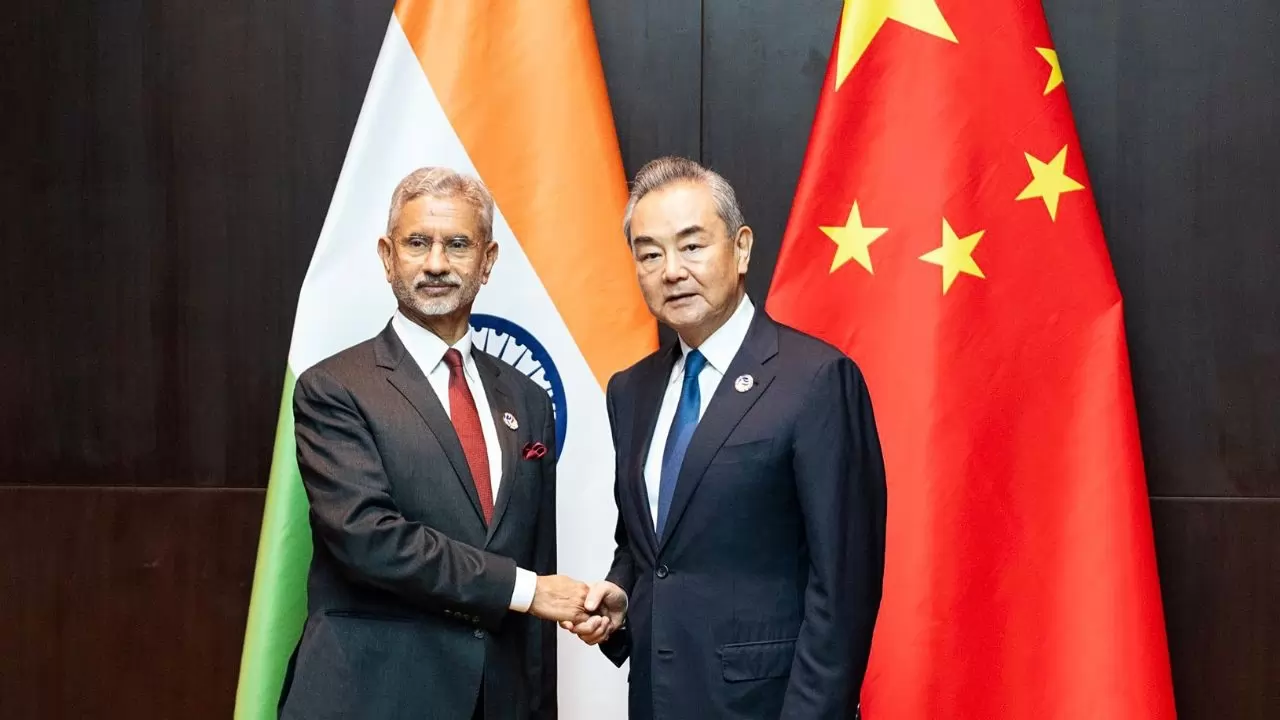
India and China (ANI)
New Delhi: India's External Affairs Minister, S. Jaishankar, delivered a strong message to China regarding the ongoing border tensions between the two countries. This came after a recent meeting with his Chinese counterpart, emphasizing India's stance on the importance of maintaining peace and stability along the border.
In a crucial meeting with China's Foreign Minister, S. Jaishankar reiterated India's firm position on resolving the border issues that have strained relations between the two neighboring countries. The meeting was part of ongoing diplomatic efforts to address the tensions that have escalated in recent years, particularly in the Ladakh region.
Met with CPC Politburo member and FM Wang Yi in Vientiane today.
— Dr. S. Jaishankar (@DrSJaishankar) July 25, 2024
Continued our ongoing discussions about our bilateral relationship. The state of the border will necessarily be reflected on the state of our ties.
Agreed on the need to give strong guidance to complete the… pic.twitter.com/pZDRio1e94
Jaishankar conveyed a stern message, highlighting the need for China to respect the agreements and protocols established to maintain peace along the border. He emphasized that the current situation is unacceptable and that normalcy can only be restored through mutual respect and adherence to these agreements. "The state of the border will determine the state of the relationship," Jaishankar stated, underscoring the direct impact of border stability on broader bilateral relations. He stressed the importance of restoring trust and confidence between the two nations, which has been eroded due to repeated incidents of aggression and standoff.
The border tensions between India and China have a long history, rooted in territorial disputes over the Line of Actual Control (LAC). The most notable recent conflict occurred in June 2020, when a violent clash in the Galwan Valley led to casualties on both sides, marking the first such incident in decades.
Since then, multiple rounds of diplomatic and military talks have been held to de-escalate the situation. However, progress has been slow, with both sides maintaining a heavy military presence in the region. The ongoing standoff has not only strained diplomatic ties but also impacted trade and economic relations between the two countries.
Despite the challenges, India remains committed to finding a peaceful resolution to the border issues. Jaishankar's meeting with his Chinese counterpart is part of a series of diplomatic engagements aimed at addressing the core issues and restoring stability along the LAC. The Indian government has consistently advocated for dialogue and diplomacy as the primary means to resolve the disputes. However, the path to peace is fraught with complexities, given the deep-rooted historical grievances and strategic interests of both nations.
The border tensions between India and China have significant global implications, particularly in the context of regional security and stability in Asia. Both countries are major players on the global stage, and their relationship has a direct impact on the geopolitical landscape.





Copyright © 2025 Top Indian News
